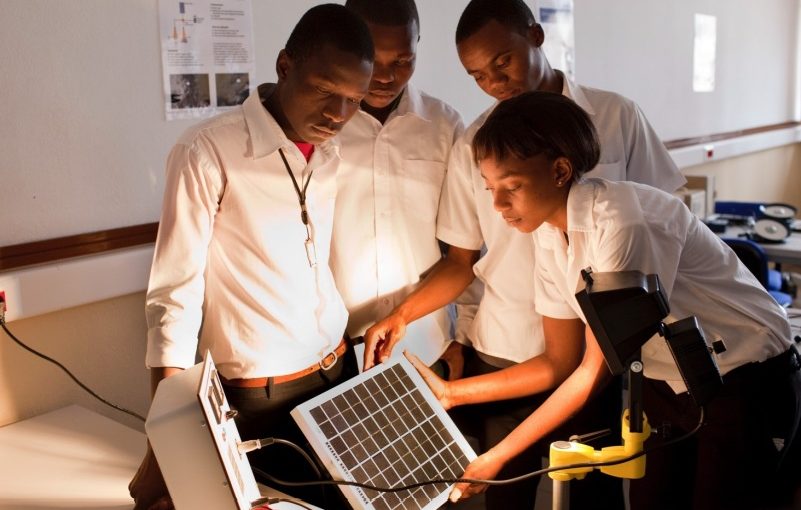Mozambique distinguished as Champion in the Fight Against Malaria
Germany and partners support youth education and employment to promote Mozambique’s inclusive growth

FILE - For illustration purposes only. [File photo: GIZ]
Mozambique has a young population and rapid demographic growth. Nearly half of Mozambicans are under 15 years old and, with one of the highest fertility rates in Sub-Saharan Africa, the country’s population is on track to reach over 50 million by 2040. While this increases pressure on basic social services, it also represents a significant opportunity if youth’s education, empowerment, and employment needs are met.
“Overcoming challenges in the education sector and preparing youth for the job market is essential to ensure that Mozambique can reap the benefits of its demographic dividend,” says Germany’s Ambassador to Mozambique, Lothar Freischlader.
The German Development Cooperation and partners support the Mozambican Government in improving education and employment opportunities for Mozambican youth through different mechanisms, such as FASE (Education Sector Support Fund) and Team Europe Initiative e-Youth.
Improving basic education
There are 7,2 million school-age children in Mozambique, one of the ten least developed countries in the world.
While the country has significantly increased school enrolment rates in the past decade, over half of the students never complete their primary education. In addition, the quality of teaching still lags behind. Illiteracy rates are remarkably high, at 39%, and many children leave school without mastering basic literacy skills.
Poverty, poor school conditions, a lack of sanitary facilities and equipment, and insufficient adequate teachers affect children’s motivation to attend school.
The dropout rates are exceptionally high among girls. According to World Bank data, around 55% of girls complete primary school in Mozambique. However, only around 31% complete their lower secondary education.
Girls face added challenges to staying in school, including a lack of privacy during menstruation and expectations of marriage and fertility.
Through FASE, German Development Cooperation finances construction and rehabilitation measures in Mozambique’s education sector to answer the shortage of adequately equipped classrooms throughout the country. This includes schools affected by cyclone Idai in Sofala province.
To improve retention and literacy levels, Germany and partners support Mozambique in strengthening its education system and improving the quality of teaching.
Promoting youth’s employment and empowerment
Around half a million Mozambican youth enter the labour market every year. However, the expansion of professional education and employment opportunities still needs to catch up with population growth.
In the past two decades, Mozambique has implemented significant reforms in its technical and vocational education and training sector, introducing a competency-based curriculum, new regulatory bodies, and revamped training institutes. The goal is to form a skilled workforce that can boost the economy and support inclusive growth in the country.
Through the Team Europe Initiative e-Youth, Germany, together with the European Union and other European Member States, put youth at the centre stage of the country’s transformation by supporting their education, employment, and empowerment. So far, 150 projects with a total of 812 million Euros contribute to the initiative, which aims at enabling Mozambican youth to reach their full potential to lead the country’s socioeconomic transformation.
READ: EU launches €812 million initiative to support young Mozambicans: ‘e-Juventude’
“If their education and, later, employment needs are met, today’s children and youth can become tomorrow’s skilled workforce and propel Mozambique’s inclusive growth,” – the Ambassador adds.
Germany and its development partners stand firm in supporting the Government of Mozambique to achieve this goal.













Leave a Reply
Be the First to Comment!
You must be logged in to post a comment.
You must be logged in to post a comment.